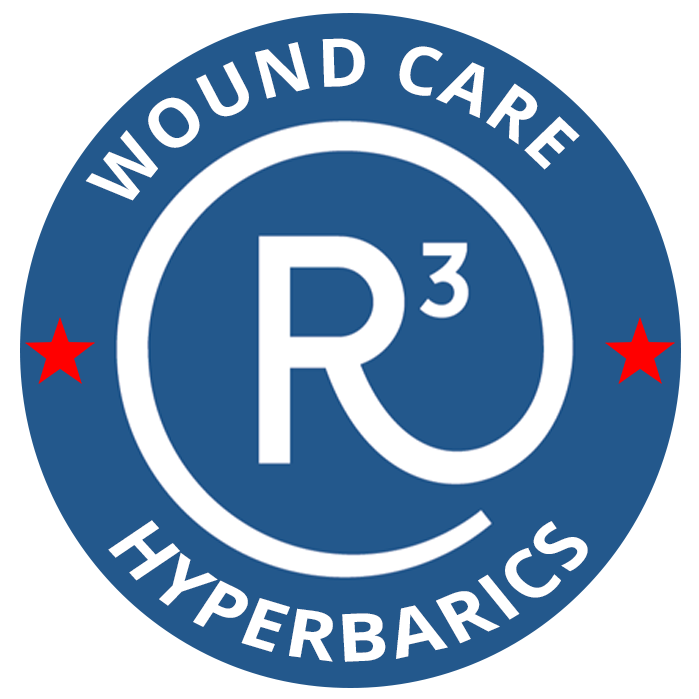What you eat plays a significant role in how your body functions on a day-to-day basis. Many people, however, don’t think about how the food they eat affects their body’s wound healing process. Eating a balanced diet of healing foods can help your body heal more quickly and effectively.
What Food Essentials Are Good For Wound Healing?
A healthy diet is a necessary piece of the puzzle for wound healing and maintaining your overall health and well-being. That means you should be balancing your diet and including all dietary essentials, especially:
- Proteins
- Micronutrients (vitamins and minerals)
- Healthy Fats
- Carbohydrates
Protein’s Role in Wound Healing
Protein is arguably one of the most important aspects of any diet because it is used in nearly every function of your body. When it comes to wound healing, protein is used to repair tissues, help carry oxygen throughout the body and help fight off infections.
Healing Food Containing Protein
Many foods are good sources of protein that can help with healing. These include:
- 3 oz chicken breast = 21 grams of protein
- 8 oz yogurt = 11 grams protein
- 1 cup milk = 8 grams protein
- 1 cup dry beans = 16 grams protein
Protein Needed for Wound Healing
The amount of protein needed per day is dependent upon the individual, but generally, the average non-active male needs 56 grams per day. The average non-active female needs to eat 46 grams of protein per day. People with wounds and other illnesses need to eat more protein each day to help in wound healing. You may consider finding a wound care specialist to help determine the optimal amount needed for you to heal.
Amino Acids and Wound Healing
Amino acids help build protein and are used in every cell of our bodies. Many amino acids have a role in building and repairing tissues, which is very important in wound healing.
Healing Food Containing Amino Acids
Arginine is an amino acid that helps increase blood flow and oxygen to the wound. This results in increased collagen formation and reduced inflammation. Foods high in arginine include pumpkin seeds, milk, yogurt, and cheese.
Another important amino acid in healing is glutamine which stimulates collagen production, regulates nitrogen metabolism, and supports the immune system. Healing foods high in glutamine include chicken, fish, cabbage, spinach, dairy foods, tofu, lentils, and beans.
Wound care clinics can prescribe a wound care supplement that includes these amino acids to ensure you are receiving enough.
Micronutrients and Wound Healing
The micronutrients needed for a healthy diet include vitamins and minerals. While your body needs a wide range of micronutrients, research shows that zinc and vitamins A and C are among some of the most vital for wound healing. Each of these micronutrients is essential to the body’s innate healing processes, and when you don’t receive enough, you may notice that you start to feel more run down than usual. They also help with the body’s inflammatory response and help produce collagen.
Other notable micronutrients that are important to wound healing include magnesium, iron, copper, vitamin E, and vitamin B.
Healing Food Containing Micronutrients
While it is best to eat a variety of foods to ensure you get all the nutrients you need for wound healing, some good choices include:
- Foods high in minerals: oysters, spinach, nuts such as cashews, legumes such as peanuts, dairy products, black beans and lentils, bananas, and fish.
- Foods high in vitamins: citrus fruits, bell peppers, whole grains, eggs, dark leafy greens, fish, lean meats, leafy greens, soybeans, almonds, sweet potatoes, and milk.
Carbohydrates and Wound Healing
When some people hear the word “carbohydrates”, they automatically think about how carbs break down into sugars, such as glucose. However, when part of a healthy, balanced diet, this glucose is put to good work. Glucose is converted into adenosine triphosphate (ATP), a type of cellular energy, which is used in the healing process.
Fats are Also Essential for Wound Healing
Healthy fats (such as fatty acids, lipids, phospholipids, linoleic and arachidonic acids) play essential roles in maintaining the body and encouraging proper wound healing. Research has shown that these healthy fats are essential for tissue regrowth and cellular metabolism and help with inflammation.
Healing Food Containing Healthy Fats
Foods with fats that can contribute to wound healing include oily fish, avocados, nuts, seeds, and eggs.
What if Healing Foods Are Not Enough for Your Wound Healing?
When it comes to nutrition, it’s important to understand that everything you consume will impact your body and its functions. Eating a well-balanced diet ensures that your body can function properly and keep creating the essential cells needed to help carry oxygen throughout the body. You may want to consult with a registered nutritionist or dietician if you need help balancing your diet, especially when it comes to wound healing.
Unfortunately, sometimes individuals must undergo strict diet restrictions, which can significantly impact their wound healing ability. Underlying health conditions (such as diabetes) also affect the body’s ability to heal well. If this is your case, you may seek a wound clinic to help you devise a plan to get you back to health.
Hyperbaric Wound Care Along With Healing Foods Can Help Heal Wounds
Some individuals may have difficulty balancing the necessary nutrients needed to help deliver oxygen where it needs to go. Hyperbaric wound care treatment delivers 100% oxygen to the body through inhalation and absorption. This ensures your body is getting the oxygen it needs to help improve your body’s wound-healing abilities. When used in conjunction with a nutrition plan, they can ensure you are getting the optimal health benefits to help your body heal.
If you would like a wound care specialist to evaluate your healing or you have questions about hyperbaric oxygen therapy (HBOT), please contact one of our offices today.
